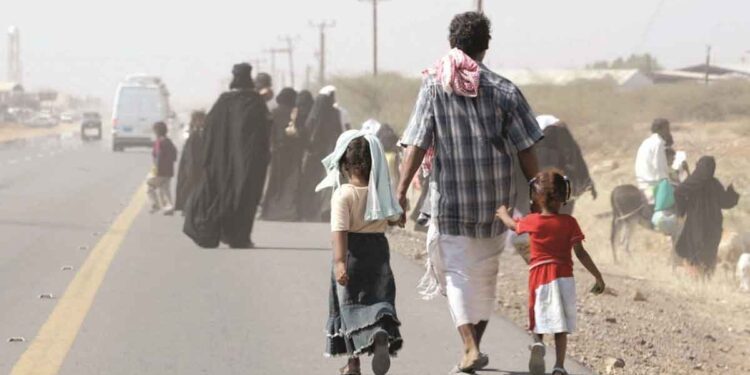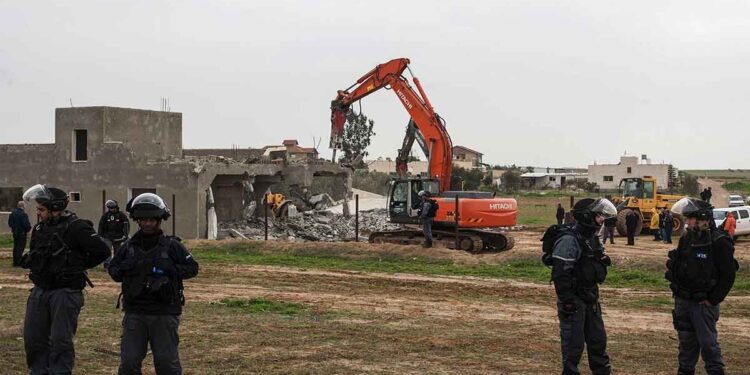A report issued yesterday (30 September) by the United Nations’ International Organisation for Migration (IOM) has stated that 67,000 Yemenis have been displaced since the beginning of 2021 as a result of the conflict in the country, now in its seventh year.
From the beginning of this year until 25 September, teams from the IOM have monitored the displacement of 11,186 families, or 67,116 individuals, noting that “between the 19th to the 25th of September, the displacement of 635 families, or 3810 individuals, was monitored.”
And, the report stated, “the largest number of displaced people fleeing their homes over the last period were monitored in the governorates of Ma‘rib (central), Shabwa (southeast) and Abyan (south).”
More than seven years since its start, the war in Yemen has killed more than 233,000 people. 80% percent of the population – approximately 30 million people – is now dependent on aid to survive what is, according to the UN report marking the seventh year of the conflict, the “worst humanitarian crisis in the world”.
The Yemen conflict is complicated by regional factors. Since March 2015, a coalition of Arab states led by Saudi Arabia has carried out pro-government military operations against the Iran-backed Houthis, who control several governorates, including that of the capital, Sanaa.
Arab Organisation for Human Rights in the UK (AOHR UK) has repeatedly condemned the international community’s silence over the United Arab Emirate’s (UAE) role in Yemen – even whilst it has inflicted mass casualties in Yemen, using weaponry provided by European and American countries, themselves claiming to respect and uphold human rights.
AOHR UK called on the international community to force the UAE to cease all attacks against civilians, and to work for the release of all detainees in Yemen and the closure of all UAE-operated prisons in the country.
The seven-year war – which became an international war with the Saudi-Emirati intervention – must be brought to an immediate end, with hugely increased aid in light of the deadly Covid-19 pandemic and the immediate risk of further famine in the country.






























